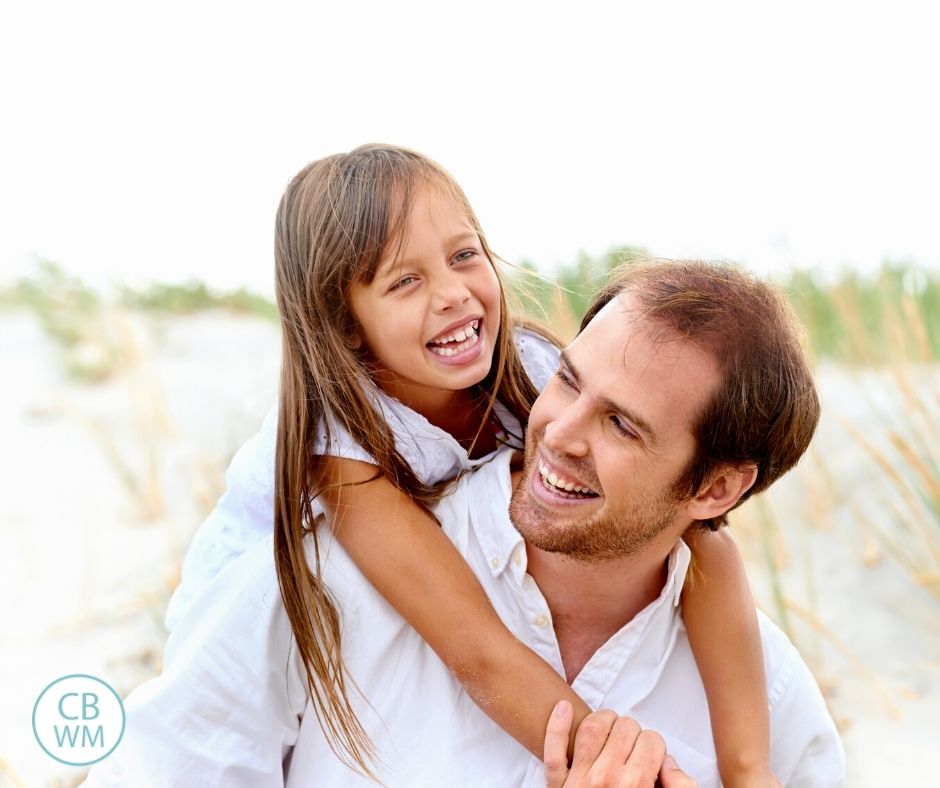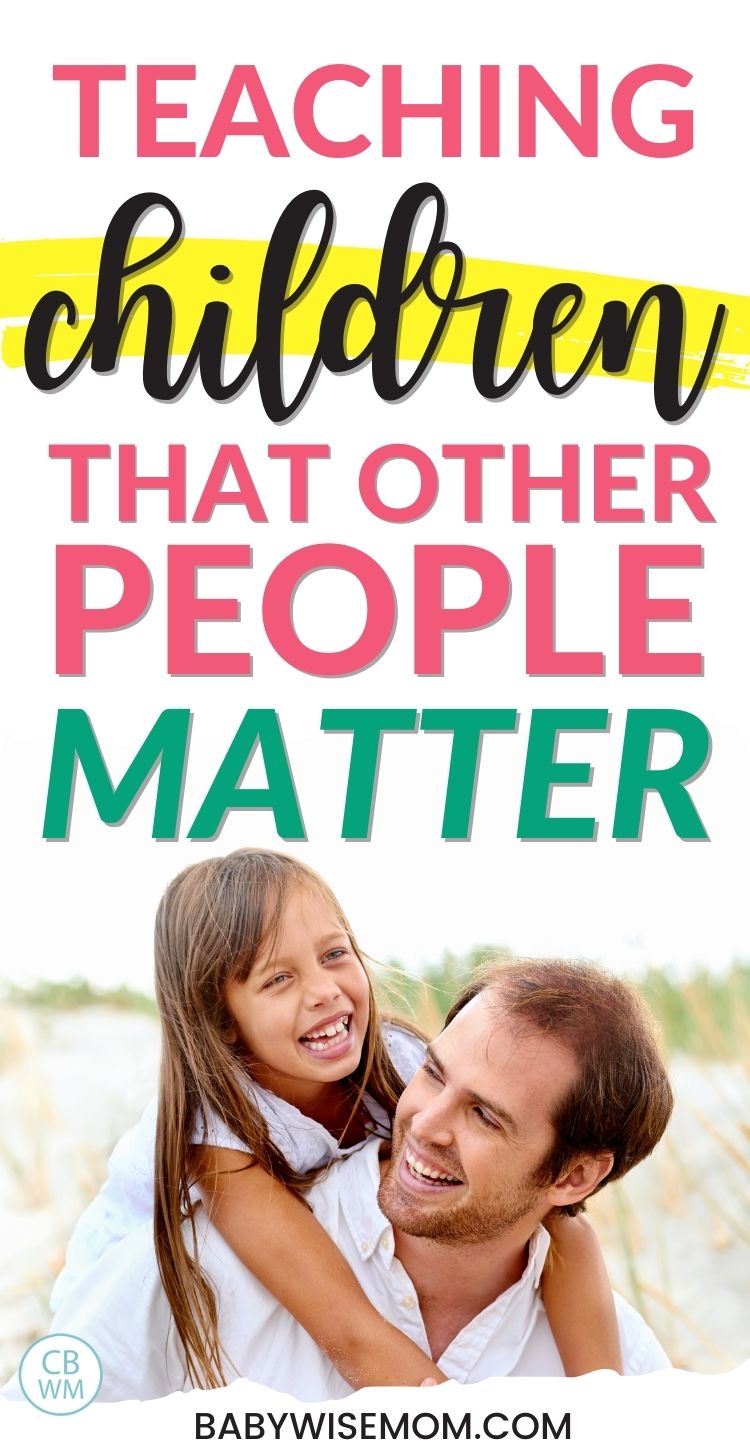Why we parents need to teach our children that other people count and tips for how to do so.

Childwise Principle #6 in On Becoming Childwise is “Other People Count” (page 70).
That is pretty straightforward, right? Other people have feelings, other people’s feelings matter, and how we treat others is important. Hard to argue with that idea.
However, how strong is this idea woven into our society?
I know the exact strength of it will vary from culture to culture, state to state, town to town, country to country, and even neighborhood to neighborhood.
How many of us today go about our daily lives with the concern on those of those around us (whether we know them or not) rather than on ourselves?
I must say, I am often guilty of seeing my own agenda without stopping to think that others might have an equally important–if not more important–agenda themselves. There are so many scenarios where this can come to play.
I think an easy one is when we are in a hurry to drive somewhere.
We can easily get impatient with the other people on the road who are going too slowly, cutting us off, going out of turn at 4-way stops, etc.
When we are on the road, it is easy to de-humanize others on the road and view them as vehicles instead. And these other vehicles are all so incredibly inconsiderate because we have a crying baby inside/doctor appointment to get to/child to pick up/ etc.
Another scenario can be when we are asked to serve someone else. Whether it be volunteering at school or taking dinner to a friend, we can often focus on how busy we are and how inconvenienced we would be to have to do this service.
But when we are on the other side and in need of the service, we can easily think about how easy it would be for someone to help out in the situation and how selfish others must be to not be helping. The real reality is that when we serve others, we feel so much better.
What we need to remember is that other people count. Everyone.
Even if you don’t know that person in the red car in front of you, you should still treat her with kindness. I don’t think many people would tail another driver that they knew, but many don’t think twice about tailing a stranger.
I share this so we can understand if our children struggle understanding the concept that other people count (and perhaps evaluate how well we are being an example to them of such things).
In our modern world, the idea that other people count is ever so important. Teenagers today (and let’s be honest, adults, too) can send a peer an insult via email, text message, or post to the wall in a matter of seconds. People will say things via these mediums that they would absolutely never say to another person’s face. I find this to be a pure tragedy.
Other people count. Even the people you are interacting with via technology.
Treating Others Well Helps Us
Those people count even if they are different from you. They count if they look different. They count if they aren’t as smart or aren’t as fast. They count if they are driving a car and count if they are on the other side of a computer screen.
“Everyone is looking for the cultural antidote to natural selfishness. Enhancing self-esteem is not it [the antidote]. We serve our children better by helping them aquire the values and virutues on which a positive sense of self is actually built. Without a healthy otherness eithic in place, there is no basis for self-respect, let alone any basis for personal esteem. For the latter grows out of the former…Children have difficulty feeling good about themselves when they lack the social and moral skills necessary to get along with others” (page 71).
Did you catch that? When children treat others nicely, they like themselves more.
People don’t feel better about themselves on a long-term level when they are rude to others.
They might find being rude to others helps them feel more justified about something they are insecure about, but they will only feel better for a short time before need to go insult the next person grows again.
How To Teach Our Children Others Count
When our child does something unkind, we ask the question, “Would you like to be treated the way you just treated that person?”
This is working toward teaching your child empathy.
Teaching your child to think about other people as actual people. People who have feelings, hopes, dreams, and ambitions. People who have their own list of things to get done that day. People who want to feel loved and people who have those who care for them.
For more on the idea of teaching our children to care for others, see this post How to Teach Children to Have Character.
Teaching our children that other people count should not be difficult. We remind them when they do unkind things that the other person is a real person.
And we absolutely teach them by being an example ourselves.
I love the phrase that the things children mean are “caught, not taught.” This means they pick up on your behaviors more than what you tell them.
Related Posts
- Teaching Your Kids to Have Charity
- Teaching Kids to Be Moral Before They Understand Why
- Instill Morality in Your Kids and Good Behavior Will Follow
- How to Teach Your Child to Love Others

